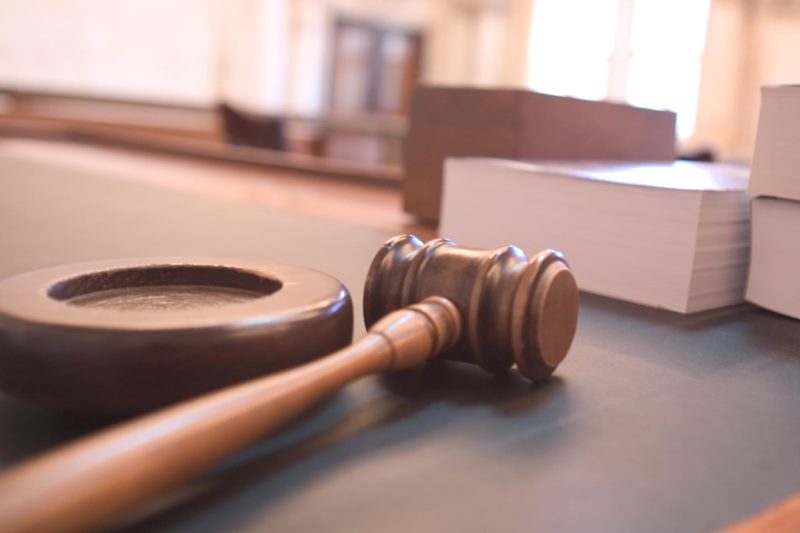Trial lawyers often refer to the courtroom as their office, but for the client, without proper preparation, the courtroom can be an intimidating place. This article is written by attorney Rick Roxin in our Rochester office. It is one of the first in a series designed to de-mystify the courtroom experience, from the beginning to the end of your case.
What Should I Expect To Happen The First Time?
“We’re going to court”. It’s a phrase which causes many lawyers to lose sleep well in advance of the date, so what should the client, who’s never been there, expect? By the end of this article, you’ll have a much better idea, and hopefully you’ll start sleeping a bit better during the case.
First, at Nave DWI Defense Attorneys, we’re trial lawyers, and truth be told, most of us far prefer being in the courtroom than in the office. Lawyers are like horses, there are thoroughbred race horse-trial lawyers like us, who are bred to go all out in court in order to win, and then, with all due respect, there are Quarter-horses, corporate lawyers who are bred to slowly pull fancy carriages…you get the point. To us, the courtroom is our office, so while you might be apprehensive, we’re not. We’re prepared, and we’re eager to get things moving.
First, plan to arrive to court 30 minutes before your scheduled time. You’ll be stressed so leave enough travel time. Your lawyer will be there, the same one you met with shortly after your arrest, and who, at that initial meeting, gave you an overview of the court process. Dress comfortably, which for ladies means a decent pair of pants and top or a dress and for guys, a clean pair of pants and a shirt with a collar (and if you wear a hat, make sure it doesn’t advertise a beer and remove it when you arrive).
We like to “circle up” with the client before court starts and again review the purpose of the court appearance. You’ll be at a “local court”, which includes village, town and city courts, many of which resemble courtrooms as seen on television, but just as many double as board meeting rooms, highway garages, and in one case I appeared in a barn with a dusty floor. Whatever the setting, the same rights are guaranteed to you under our Constitution, whether the courtroom’s walls are made of polished marble or rotting sheetrock, we’ll fight like there’s literally no tomorrow to ensure that you’re protected, because it’s your life we’re talking about here.
When going to court for the first time after your arrest, it’s referred to as the “arraignment”. When our case is called, your attorney and you will together stand before the judge, who will likely ask you to identify yourself. From there, your attorney will handle the rest of the speaking in court, including “waiving” (giving up) a full reading of the charges against you (to essentially protect your privacy) and will enter a full-eye-contact-confidently-spoken “Not Guilty” plea to all charges filed against you.
If you submitted a breath sample as part of your DWI arrest, and police reports filed with the court show that your Blood Alcohol Content (“BAC”) was a 0.08 or higher, the judge may direct you to surrender your license, if you weren’t convicted of an alcohol-related driving offense in the last five years, we’ll make an application on your behalf for a hardship (limited use) license. A hardship license means you’ll be allowed to drive from home to work, any classes and doctor’s appointments. However, if you refused to submit a breath sample, you won’t be eligible for a hardship license. Instead you will be given a date within 15 days for a Refusal Hearing at the DMV, where we’ll challenge the adequacy of the so-called refusal warnings (The Refusal case, as it is known, will soon to be the subject of a separate article).
Your arraignment may last all of 5 minutes, but because you heard the charges and a “Not Guilty” plea was entered by your lawyer, it’s been a very important court appearance. Don’t underestimate the significance of the judge’s first impression of you. At the end of the arraignment, the judge will then be asked by your lawyer for an adjournment for 30-45 days, during which time the District Attorney’s Office will turn over, in response to our written demands, all of the police reports and other documents (“Discovery”) related to our case. You and your lawyer will meet again outside of the courtroom and review the legal proceedings which just took place and what will likely occur at the next court appearance, and a date and time will be scheduled to discuss what’s contained in the police reports containing what the police claim took place.
As always, feel free to contact your lawyer with any questions, and hopefully, you’ll be on the way to sleeping better as a result of your lawyer’s handling of the case.
Next up…motion arguments.
The exclusive purpose of this article is educational and it is not intended as either legal advice or a general solution to any specific legal problem. Corporate offices for Nave DWI Defense Attorneys are located at 432 N. Franklin Street, Suite 80, Syracuse, NY 13204; Telephone No.: 1-866-792-7800. Prior results do not guarantee a similar outcome. Attorney Advertising.





